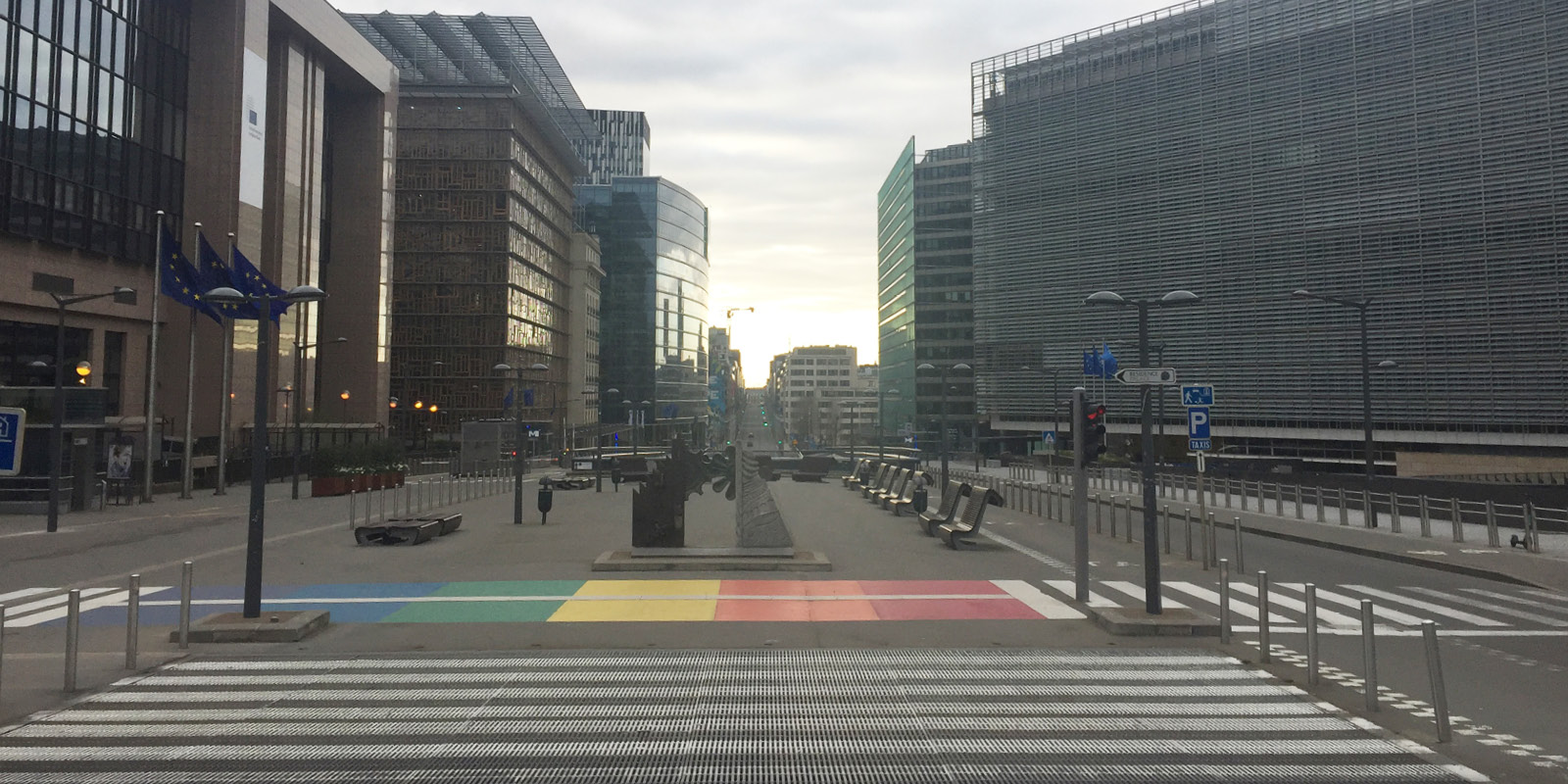New leadership perspectives, priorities and processes for the EU NGO sector under lockdown
As Brussels knuckles down to another confinement extension, new perspectives and ways of operating are beginning to emerge across the EU not for profit sector. This article examines first the likely wider geopolitical effects of COVID-19 on EU NGOs before homing in on the concerns and lessons learnt of three recognised EU NGO leaders.
There are some 4000 NGOs, Thinktanks, research and academic institutions registered to lobby the EU Institutions; they represent a little less than a third of the total number of organisations listed in the EU Transparency Register. Of these, the great majority receive EU funding. Whilst there is a strong declared will to move away from dependence on these funding sources that come with stringent reporting requirements coupled with draconian enforcement measures, most organisations are intrinsically linked to the EU. The European Parliament encourages participatory democracy and the close involvement of third sector representatives at MEP policy discussion tables. The EU, which still includes the UK until the end of 2020, is the global leader for environmental and social protection.
A new and evolving geopolitical context:
On 14th April, the Eurogroup leaders approved an economic recovery package adding up to half a trillion Euros including a new Pandemic Emergency Purchase Programme with an overall envelope of 750 billion Euros. To address the crisis, national governments are already providing urgent support to industries with an emphasis on Small and Medium Enterprises.
But what of the Third Sector? How might the Coronavirus crisis shift the focus of priority funding under the European Green deal? Will an adapted 7-year Multiannual Framework Fund (MFF) be soon approved? How can EU NGOs ensure that the economic recovery plans do not exacerbate social injustice and environmental damage?
Bailing out the world’s most polluting industries or stimulating growth in unsustainable supply chains will only undermine existing societal gains and exacerbate how we deal with future crises.
The pandemic and its effects have now hit EU NGOs at a unique time in EU history. There was no agreement between EU budget-pressured leaders at the last talks in February on the pivotal 7-year MFF. Future negotiations will now need to take account of new health and social emergencies, just as nationalist governments seek to limit basic democratic rights and the EU is led by untried and untested Presidents of the European Commission and Council. Let us not forget Brexit of course. This makes for a ‘Perfect Storm’ which calls for exceptional leadership in unchartered territory.
The European Green Deal sets out a strategy which, “aims to transform the EU into a fair and prosperous society with a modern, resource efficient and competitive economy where there are no net emissions of greenhouse gases in 2050 and where economic growth is decoupled from resource use”. This agreement was reached before the full impact of the virus could be ascertained. However, the core of the Green Deal contains a new means of priority decision-making: The Just Transition Mechanism. This last ensures that social fairness is included as a measure in devising future sustainable economic processes. For the first time, it should put people’s wellbeing at the heart of the crisis response.
The not for profit sector is not waiting on bated breath to see if this agreement on the new mechanism is heeded. In the April 7th WWF recommendations on sustainable recovery after Covid-19, Ester Asin, Director of the WWF European Policy Office, argues that, “economic recovery and environmental action can and must go hand in hand, by channelling investments into future proofing our economies and making them resilient in the long term.”
While some consider the Green Deal as the consummate tool for addressing both environmental damage and social injustice, others point to more immediate threats such as tax cuts and subsidies to the fossil fuel or car manufacturing industries. There is also the risk of losing ground gained at great cost, such as the EU ban on single use plastics. Pascale Moehrle, Executive Director and Vice President for Oceana in Europe, comments that, “NGOs are speeding up coalition discussions based on the main message that we cannot backtrack due to adapting to Covid-19”.
The environmental NGO sector is not alone in scrutinising how new economic measures are implemented. Michiel van Hulten, Director of Transparency International EU, states that, “Our core mission is fighting corruption, and the release of billions of euros in loans and grants by the EU Institutions and national governments, some with questionable democratic accountability, increases the need for scrutiny by organisations such as ours to make sure the funds end up where they belong.
We have to make sure that important recent policy gains, for instance in the field of the transparency of public procurement processes, aren’t sacrificed in misguided attempts to speed up the economic recovery.
And we have to protect the rule of law across the EU, which was already under threat before the crisis and now faces an even bigger onslaught. That is an area of work that will require much more of our time”.
New ways of working and lessons learnt:
On a practical level, how have EU NGO leaders adapted to the crisis and what lessons have been learnt?
As the health crisis caused by the pandemic and its severe socio-economic ramifications are understandably at the forefront of the minds of EU NGO leaders, we ask how they adapted their leadership skills and their approach to managing priorities.
Jana Hainsworth, Secretary General of Eurochild, prioritises, “readjusting work so as to be relevant to members responding to the crisis and its impact on children. We are also adjusting our advocacy to influence EU planning for recovery”. In the future, Jana thinks that there will be more online webinars and meetings for members.
Pascale at Oceana, describes how she led the adaptation of her Europe- wide team’s planning calendar. The ban on non-essential travel and a calmer (for some) atmosphere at home meant that task types and work plans were examined to allow for, for instance, report drafting instead of advocacy meetings. Priorities were switched to adapt to circumstances but again, “we fear that some EU level decisions will be steam-rolled, and we will not be able to consult internally on time to develop our policy position”. Pascale however is “amazed by the adaptability and resilience of my staff”.
She has brightened up the weekly virtual meetings by introducing the “caring dolphin” icon for deserving team members, awarded by those same members to each other. It goes to, “someone who has been really helpful to you in accomplishing your tasks that week. The dolphin will stay on post crisis!”
Michiel has also adapted work and activity planning; “As is the case for many other NGOs, most of our funding is tied to specific projects. In order to free up team members to work on specific coronavirus-related challenges, we need to free up time, shift budgets and identify new donors. Delivering on our existing policy objectives becomes harder, and meanwhile everyone in the NGO world is scrambling around for new funding. The key here is to make sure you stick as closely as possible to your core competences and areas of expertise”.
All agree that in the future, there will be less travel, more teleworking and a greater focus on how our environment affects our happiness and overall productivity. First and foremost, the absolute priority for these leaders is to make sure that all their team members are healthy, able and equipped to work from home. Many more leadership challenges lie ahead for the EU NGO sector. With the help of the “caring dolphin” (and its friends in other guises), those who can learn quickly, adapt strategically, garner wide support and forge a clear path ahead will win out.

Dr Rachel Barlow
Dr Rachel Barlow joined Oxford HR in May 2020, She is a headhunter for the EU not for profit sector, recruiting for civil society organisations, business associations and alliances. A Professor of lobbying at Vesalius College, Brussels, Rachel is also a Board member of the leading Thinktank, the European Policy Centre.
A self-confessed governance geek, Rachel relishes re-structuring complex organisations so that they can better serve their members and fulfil their respective missions. More recently, she has worked closely with NGOs to assess their “fitness” to take on the challenges of the new EU legislature and advises on best practice for team structure and cohesion for public affairs success.
As a former Vice President of Kellen Europe (an association management company), Rachel has led, created, managed, advised and represented European and International multi-level organisations throughout her 25-year career.
Rachel is British (soon to also be Belgian), Brussels based, and speaks fluent French and Italian.



